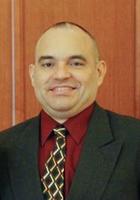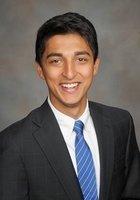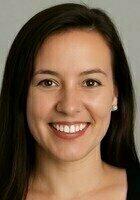Connect with hundreds of tutors like Christian
America's #1 Tutoring Platform
Who needs tutoring?
FEATURED BY
TUTORS FROM
- YaleUniversity
- PrincetonUniversity
- StanfordUniversity
- CornellUniversity

Christian
Bachelor of Science, Physics
UniversityOF CALIF SAN DIEGO, UniversityOF CALIF SAN DIEGO
About Me
I am a homeschooler with two kids. I have a Ph.D. in physics from the University of California, San Diego. I've worked in government, industry and academia. I've done much teaching in my career and in my church. Resume, background check and testimonials are available upon request. I have several teaching videos I've created and upload to the Internet you can probably find as well.
Education & Certifications
UniversityOF CALIF SAN DIEGO
Bachelor of Science, Physics
UniversityOF CALIF SAN DIEGO
Doctor of Philosophy, Physics
Q&A with Christian
Teaching Philosophy by Dr. Christian Seberino Why am I motivated to teach? It all started with an elementary school dropout. My father worked hard to immigrate to America, start a tailoring business, and pay for my education. I was the first person in my family to go to college. I teach because I know education is priceless. I am also motivated to teach to bless other homeschoolers. As a member of this group myself, I know the sacrifices parents must make to teach their children. Homeschool parents are lights in a world of narcissism, materialism, and workaholism. I believe the future of our country belongs to these noble families. I teach partially to support these wonderful courageous people. I also view teaching as a service to my country. The 2001 Hart Rudman Commission on American National Security, a bipartisan group, concluded that the second greatest threat to national security is the failure of math and science education. Three-time Pulitzer Prize winning author, journalist, and New York Times columnist Thomas Friedman also thinks the United States desperately needs a renewed national focus on math and science education. The reason this renewed focus is needed, Friedman writes in The World Is Flat, is for the United States to remain economically competitive in the new century. China and India, for example, are making great strides in math and science education, while our educational system consistently ranks poorly in comparison. Teaching is one way I can do my part to help America. I also teach to show students the deep beauty inherent in math and science. We could have inherited a universe of chaos. Instead, we live in a universe of breathtaking elegance and unity. I desire to awaken an appreciation for this in students. Teaching may require death-defying thousand mile drives through uninhabited snowy lands. I learned this while teaching computer security to the Air Force in Alaska during the week of 9/11. After being stranded in Anchorage with no flights scheduled to leave, I seriously contemplated driving across Canada in a rental car to get back home to my frightened family. Here are some other, perhaps less melodramatic, tools of successful teaching that I endeavor to employ: Passion: I only teach on subjects I am passionate about because I believe passion causes us to put in extra effort and excel. My positive evaluations at the University of California, San Diego OASIS Tutoring Center were partially due to students noticing my passion. It was there I earned the nickname of "Mr. Physics." I also distinctly remember the lavish praise my conscientiousness garnered while working for Professor Cliff Surko as a teaching assistant. It is hard to imagine any excellence without passion. Listening: It is imperative to listen to students. I do not assume my methods are infallible. I do not race through material assuming my pace is adequate without class confirmation. As a private tutor for many years, I have learned that students generally learn much slower than a subject matter expert is prone to think. Listening to students helps me tailor the class to the students rather than expecting the students to "fit" into my class. Technology: Mathematical software systems, such as Sage, have great potential to improve class learning. Graphical, numerical, and analytic exploration of concepts such technologies have been well received in my classes. Furthermore, because many applications such as Sage are free and open source, technology does not have to place a financial burden on students. Servanthood: Happiness is found in serving others. I have served my wife through many years of marriage. I am also learning to serve my two children, both as father and as the "principal" of our homeschool. I have also learned the joys of serving as a leader of Bible studies, men's groups, and financial classes in my church for over 15 years. Purpose: I have learned through my successful career that a six figure salary is not enough inspiration. I need to be serving as a teacher, or I will not be fulfilling my life purpose, and therefore, will not be content. I try to be purposeful in my teaching as well as help students to recognize their purpose and potential.
Tutoring Subjects
Connect with a tutor like Christian
Connect with a tutor like Christian
Tutors with Similar Experience


